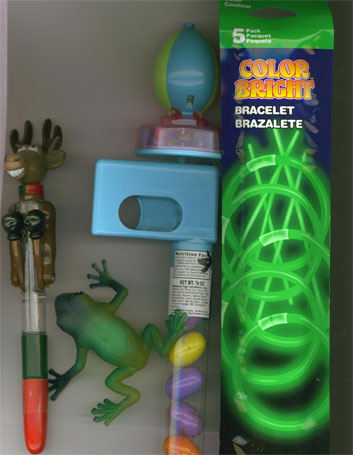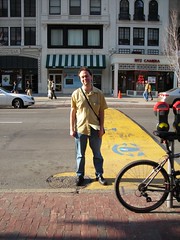Okay, so snarky nonreligious folks have had much to crow about
the recent large-scale study that fails to find effects of intercessionary prayer. Given that I am a nonreligious person with a strong tendency toward snark, one might expect me to pile on.
Instead, the part of this that I really, truly do not understand is
why someone with theistic beliefs would, if they thought the matter all the way through, expect there to be observable effects of intercessionary prayer in a randomized trial. If anything, one could argue that under the usual conditions of such trials any effects, if observed, would actually be more evidence
against the existence of a God like the one that most Christians I know talk about, and would rather be evidence for a different kind of 'action at a distance' force operating in the universe. (That said, elaborated experiments could show that intercessionary prayer had an effect only when prayers to a specific God, etc., was prayed to, which obviously, if indisputable effects were observed, would be strong evidence for the implied cosmology).
I'm completely serious about this. I don't get it.
If you are a Christian who believes that intercessionary prayer is something one should be able to study using a randomized clinical trial, I would love to be able to ask you questions about your conception of God and how prayer works. Here, on this blog, we could have a colloquy. Let me know. I mean, I'm open-minded about this, but I think that you could only hold that kind of hope about a trial if you hold internally inconsistent beliefs about God and prayer.
To put my argument simply: Person A has been randomly assigned to the treatment group. Person B is in the control group. Solely because of this random assignment, some well-intentioned-science-minded people pray for Person A and not Person B. Say you were God. Do you really help A and not B?
What kind of God would do that?Apart from that question, consider the point of the "randomized" part of randomized clinical trials. Randomization allows for powerful causal inferences because assignment to the treatment can be presumed to be independent to the other potential causes of the outcome.
Except, um, when you are talking about God as a potential cause. You flip a coin to assign subjects to the treatment and control groups, and you want to study the causal effect of God but assume that God has no causal influence on the outcome of the coin flip. This same God who will subsequently save lives can't turn a heads into a tails? Seriously,
how can you reconcile God and random assignment for a study of the effect of God?*This led to a weird diversion this afternoon, which was trying to think about how one would go about
trying to God-proof an experiment. In other words, how could you design a clinical trial so that you could have the most confidence that God was not mucking with your random assignment? I decided that you had to adopt a strategy where the assignment was not random, but could be presumed effectively random for the purposes of the experiment, and where the nonrandom assignment algorithm was as costly for God to muck with as possible. In other words, you would have to make it such that, for God to mess with your random assignment, God would have to had to actively intervene in the world in a very large and complicated series of ways--with who knows what effects--in order to exert the same kind of control over who was in the treatment and control group as if assignment was just based on a coin-flip. Specifically, I came to the conclusion that assignment should be based on the first two letters of one's surname, with "aa" being in the treatment group, "ab" being in the control group, and so on. The point is not that God would be incapable of still intervening to have deterministic (a.k.a. God-like) control over your assignment of treatment and control groups, just that your experiment would need to have been a very high priority influencing all kinds of other things in the world in order for this kind of deterministic influence to be exerted.
Also, by my calculations, you would need a very large sample.
** * As it happens, studies of intercessionary prayer are typically agnostic as to whether the effects of prayer are caused by God or something else. This is my whole argument in the second paragraph. My belief is that, if effects were observed, they would be evidence for the causal effect of that "something else" more straightforwardly than evidence for the causal effect of God.
** Preferably a census for whatever illness one was considering. Otherwise, all your God-proofing of the assignment process would get messed up by the non-God-proofing of the selection into who participates in the experiment.








